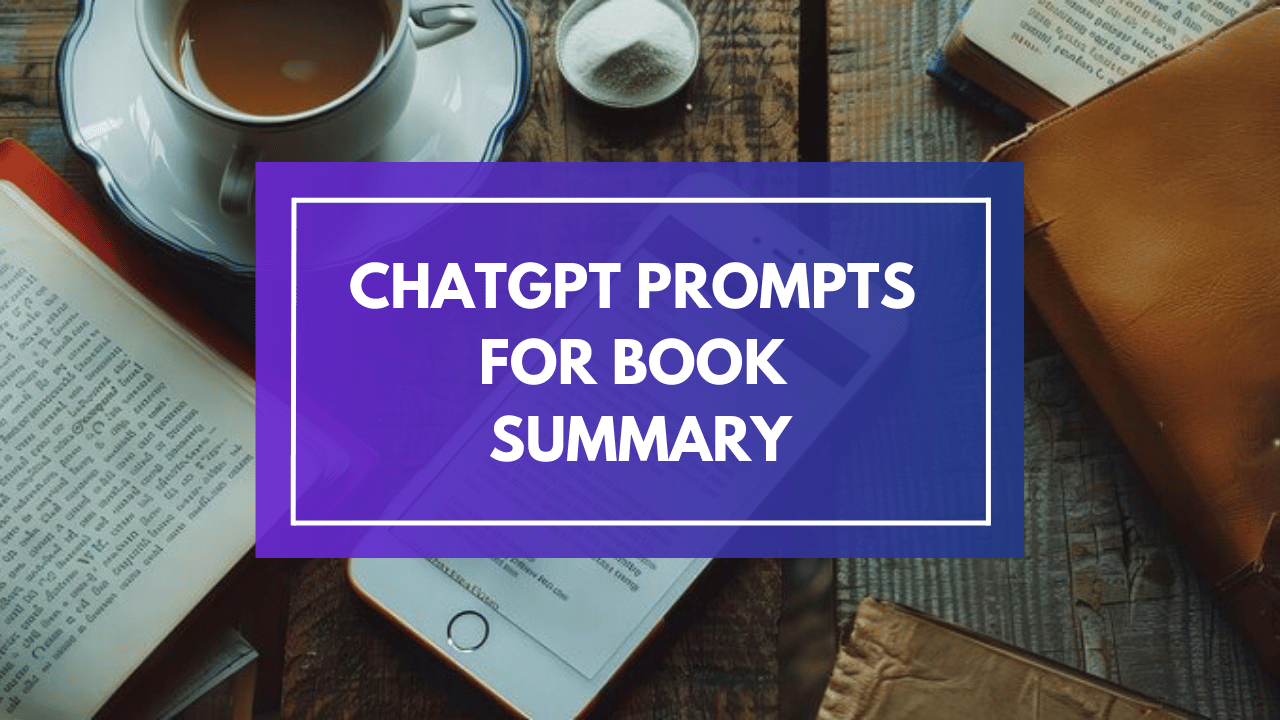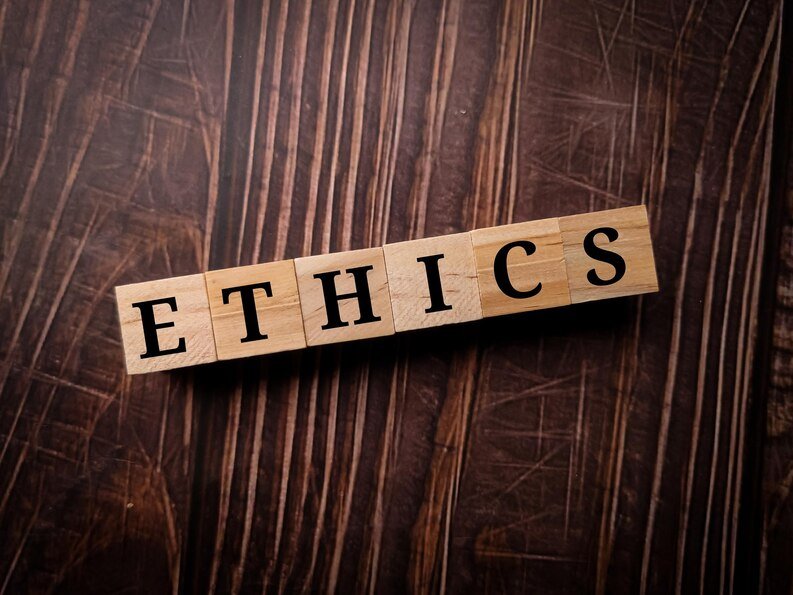
Hi, all of you book lovers and people who have no time to waste on reading books! Have you ever been on the verge of seeking refuge and drowning in the thought of too many books in your possession and wondering if you can extract their essence in your head without spinning too many pages? Well, then take your best reading chair and your cup of tea because I am going to let you in on a little change which is transforming the not necessarily conventional way of reading books: using ChatGPT prompts for book summary
Now, I know what you are thinking. “Another of those tools with an AI? Isn’t that cheating?” Whoa now! We are not looking at doing away with the reading pleasure here. This is meant to assist you in moving through your book list that is on your shelf without making any effort. Thus let us go straight to the point and see how to use ChatGPT as the best complement when it comes to reading books.
The ChatGPT Revolution: Your New Reading Buddy

Source: Freepik
When was the last time you were tasked with the laborious effort of trying to summarize a book and it involved reading a ton of pages, writing its contents on some form of paper, and interpreting everything? Those were the days when people would carry in ustensils, quills, and inkwells. Well, now this has an upgrade, and it’s called ChatGPT.
Here is the twist though – ChatGPT is dumb and clever at the same time – the usage of it depends on the prompts one gives out. It’s like having a super-smart friend who has read all the books in the world but cannot answer questions without you asking them properly. And that’s exactly what we’re here to learn!
I remember coming across this eureka moment of a technique when I was simply swamped with the reading list for a literature subject. There I was, surrounded by these piles of books and feeling as if I was placed in a day of Jenga but in literature. It was then that a tech-savvy classmate of mine introduced ChatGPT me to. At first, I was quite cynical about AI. I mean, is it possible for an AI to appreciate and understand the depth that is Tolstoy or the humor that is Oscar Wilde? Oh, how wrong was I oh how wrong!
Cracking the Code: General Prompts for Overall Book Summaries
Now that we are all warmed up let’s look into an easier task, or as many people want to call it “the elementary level”. When you are seeking to make a book summary from a broader perspective, then you have to come up with prompts that will elicit the core without the detail.
It’s like how you want to ask someone for directions and you do not want them to give you a detailed account of each tree and lamppost that you will see on the way.
The following are some of the killer prompts that I have perfected through trials (and trust me, there were a lot of trials initially):
- “Give a summary of the most prominent ideas of the book [Title of the Book] by [Author’s Name], providing details of each chapter such themes and arguments tenants).”
- “List all the elements of [Book Title] pointing out the central storyline, characters, and events in chronological order.”
- “What are the 5 key points from [Book Title] that everyone must remember about the book?”
Pro tip: Always include the book title and author in your prompt. It helps ChatGPT focus on the requested book. If only there were books like that. I learned this lesson the hard after one instance where I asked for a report on ‘Pride and Prejudice and Zombies and got one on ‘Pride and Prejudice instead. That was ugh Darcy was much less undead than I anticipated.
Diving Deeper: Prompts for Chapter-Specific Summaries
It is always possible to focus on ideas in a particular chapter. A chapter in a book that your professor keeps going on about or a chapter section that is giving you a lot of stress. Don’t worry! Here are a few prompts so that you can deconstruct chapters just like a surgeon would do;
- “Summarize Chapter [X] of [Book Title], paying attention to its basic ideas, key events that happened, and the relevance of the chapter to the book as a whole.”
- “Summarize the most important quotes of chapter [X] from [Book Title] and how they fit into the chapter(s) context.”
- “Pick chapters [X] and [Y] in [Book Title]. What are the main events in each of them? How are they connected to the character development or the plot?”
I recall such prompts being used when preparing “Moby Dick.” Let me tell you, certain chapters were quite easy to go around…. like harpooning a well…a whale. But with such factorized prompts, I was able to see it up and comprehend the reason why SO many pages were dedicated to the study of such other whale species.
Reading Between the Lines: Prompts for Themes and Author’s Purpose
Now we proceed to the good parts – the themes and the overarching strategy of the author.
This is your chance to shine (with a bit of assistance from our AI friend). You may test the following prompts:
- “Outline and analyze the major themes in this work [book title]. Support your answer with quotes/ illustrations from the text.”
- “What do you think is the primary motivation behind the author of the book – [Book Title]? Illustrate your answer with some extracts from the work.”
- “To what extent does the background of the author and the context of the historical period impact the themes and messages presented in [Book Title]?”
These prompts will help you make it seem as though you have been contemplating the underlying themes of the book for ages, when in fact you only finished the book the night before. (No need to worry about this, your secret is safe with me.)
I employed these while attempting to break down George Orwell’s “1984.” I’m not going to lie, getting in the nitty-gritty of themes like totalitarianism and surveillance was much easier when I had Chat GPT doing it for me. It was like having a nice lit professor in my pocket without the elbow patches or coffee breath.
Character Realization: Questions to Explore the Characters of the Book
Let’s be blunt; there are instances when fictional characters in a book appear to be more life-like than the people who are alive. (Sorry real people!) It’s an in-depth character analysis that helps determine the success of the reading. Following are some prompts in that direction:
- “Write a detailed character sketch of [Character Name] from [Book Title] referring to her/his nature, objectives, and manifold changes during the novel.”
- “It has been seen that [Book Title] has the protagonist as well as the antagonist. Compare both of these characters and the differences present in them.”
- “List the supporting characters in [Book Title] and what role are they playing in the main plot development?”
Soon such prompts and such dissection shall make you a veteran psychologist. You will make Dr. Freud proud!
I remember using these prompts for character analysis in “To Kill a Mockingbird.” Atticus Finch was not just a character anymore; he was an actual person – a man who had more than what you read about on the books’ pages. And I do not even want to start on Boo Radley. Let’s just say I had a complete shift of views on the rather adjoint’ Jim.
Read Also: Unleash Your Inner Author: 10 Mind-Blowing ChatGPT Prompts for Writing a Non-Fiction Book That Sells
Genre-Specific Magic: Tailored Prompts for Different Book Categories
Every book is not the same nor should your prompts be. Some category-specific prompts will help improve your perfection in various genres.
For Science and Math Books:
- “In the book [Book Title] discuss the chapters and school one mathematical law that you find and state how it is important and where it can be used.”
- “What important scientific advances, or ideas are explored in [Book Title], and how do they relate to the people who came before them in the same scene?”
For Fiction Books:
- “Is [Book Title] linear or non-linear? View the timeline of the story, how did the author incorporate flashbacks, foreshadowing, and internal narrators?”
- “What are the characteristics of the surrounding or keyword: world in [Book Title]? How does the writer manage to make it a very interesting place?”
For Self-Help Books:
- “What are the main concepts on self-management and self-growth that the author or the editors of the volume compiled in [Book Title] and how they are supposed to be done?”
- “In regards to personal or clinical examples from the texts in [Book Title] were refrained and instead the principles of the book were described with.”
For Historical Books:
- “What are the primary sources used/ analyzed in the work of the author in [Book Title]? How does the author of [Book Title] use his sources?”
- “How does [Book Title] view historical occurrences within a time such as the colonization of India about the politics, economics, and social systems in place during that time?”
These genre-specific prompts have been lifesavers.
As I was immersed in Stephen Hawking’s controversial but famous “A Brief History of Time,” in this case, something science-related helped me grasp the hard bits without the feeling that my entire gray mass had become a black hole. Well, and for novels undergoing events that can be considered reflux in current times? Let’s just say these prompts had me feeling like a time machine wearing, crime scene investigating historian, but clearer.
Reviving the excitement: A real life case study

Source: Freepik
Now let us apply this in practice. For instance, let’s consider we are writing a summary of “The Great Gatsby” by F. Scott Fitzgerald. Here is a sequence of how you could phrase your prompts:
- “Determine the basic details in ‘The Great Gatsby’, in such a way that the main events in the story, some important characters, and the main themes are addressed.”
- “Say a few words about Jay Gatsby’s character in ‘The Great Gatsby’. Why does he do what he does? What made him do those things he did?”
- “In what ways does F. Scott Fitzgerald use symbolism in ‘The Great Gatsby’? Cite member examples and discuss their importance.”
- “What is your opinion on the picture of wealth and ‘The American Dream’ in the novel, ‘The Great Gatsby’? These two themes how are they connected in the course of the book?”
- “Outline the plot of ‘The Great Gatsby’. What is the impact, if any of the narrative strategy chosen (the narrator being Nick Carraway)?”
By employing successive prompts, one is likely to produce a comprehensive summary that involves not only the story development, but description of the characters, main themes, and related literary devices. It’s like having a literature professor in your pocket!
An Ethical Issue that One Cannot Ignore.

Source: Freepik
However, before we conclude, some final words about the ethics of AI’s use for book summaries need to be mentioned. ChatGPT is a great tool, however, one needs to bear them in mind when using it. There are some simple rules, which I set up for myself.
- It would be imperative that one did not see it as a substitute for a book, but rather a means of assisting them while doing their revision exercises. One must experience reading the book for its worth and comprehension by any other means.
- One must make sure that one meets the text from which the AI made the summary. There are instances when AI makes errors or simplifies two different sources into one.
- While adopting these summaries for academic purposes, ask the lecturer to what extent an AI helps in completing tasks.
- Give credit where it’s needed. If the work contains texts created using AI summarizing software,-do not conceal it from the audience.
As you edit your writing, make sure that the aim of improvement isn’t the shortcut!
I remember a time when I got caught up using ChatGPT, for a book review assignment, and I learned this lesson poorly through that experience. Well, I got all the factual information, but failed to grasp the emotions that the characters went through and the other details of reading that were sort of the passion of the activity. These days, I pull my ChatGPT to help me read, but for no reason, I pull it out and pretend it is the book.
Congratulations! Now you have a kind of a Swiss Army knife of prompts, for every book summary problem. If you are a student, falling behind in reading assignments, a book club member getting ready for the next meeting, or just an ordinary reader who wants to read more books, in less time, you need to try these ChatGPT prompts – they are your new superpower.
But here is the real wonder – the more and more you will use these prompts, the more adept you shall become in deploying those prompts. You will begin to recognize structures, comprehend what methods work better for different kinds of books, and acquire a kind of instinct on how to excavate the most useful sentence from any kind of text.
Keep in mind that ChatGPT is a tool, and as with any tool, a user’s efficiency will affect how well it works. Go ahead, experiment, and adjust your approach. Who knows? You may even find more effective prompts than the ones we have discussed. If you do, please let the other bookworms know!
Read Also: You Won’t Believe These 10 ‘ChatGPT Prompts to Avoid AI Detection’ Actually Work!
Frequently Asked Questions About ChatGPT Prompts for Book Summary
Q1: What does it mean to use ChatGPT rather than explain it with basic book summaries?
ChatGPT book summary prompts are appropriate questions or directions that are given to the chatbot to produce short informative texts. These prompts aim at enabling the reader to get the necessary information, and themes and analyze the problem presented within the work in a short period.
Q2: Would you say prompts on ChatGPT can enable me to appreciate reading certain books more?
ChatGPT prompts can enhance your reading experience by:
- Giving you synopses of difficult books which were done in seconds
- Enabling you to identify the main ideas and plot points of interest
- Looking at the same piece of writing from many angles
- Getting you ready for a book debate or a paper that has to do with books
- Making it easier for you to read many more books in shorter periods.
Q3: In your opinion, would a reader who only reads ChatGPT book summaries ever imagine doing away with real books?
No, it is wrong to think that the summaries derived from ChatGPT are influenced by the sentiments and understanding one would derive from the pages of the book. They work well when it comes to using them for some purposes like comprehension of the text, quick recall, or even letting the reader get the first picture. The reason is that to get the whole feeling of the book and the thoughts the reader wants to share, he/she has to finish the whole book, and how the person envisions it emotionally will not be the same as reading the book.
Q4: How can Book summaries be created using the ChatGPT prompts?
To develop effective prompts:
- Indicate the title of the book and the author
- Make use of an open questionnaire
- Target specific features (textures, characters, plots)
- Extract specific passages or site sections
- Disintegrate intricate novels into moderate pieces that can be handled easily
Q5: Are the ChatGPT prompts applicable in tips and suggestions for the different types of books?
Yes, ChatGPT prompts can be designed to work across many areas such as fiction and non-fiction books, history and science books, and children and self-improvement books. Each genre might then come with its version of the prompts to elicit the desired attributes.
Q6: Is there a moral way to use the ChatGPT when making book summaries, especially in schools?
The debate on the ethical implications of artificial intelligence summary in education on the other hand is complicated. It is important to:
- Know your institution’s stance on the use of AI
- Use ChatGPT to complement what is already prepared, not the other way around
- Cite a text and then sift the information to be true from the actual text
- Seek consensus concerning the use of such tools and devices in your piece of work.
Q7: How correct are the novels in summary form according to ChatGPTs?
Sufficiently so. Summaries made by ChatGPT are mostly correct but they may at times have some faults or misinterpret a given aspect. It is best to make sure that critical points are checked against the primary narrative. The users should view ChatGPT as a preliminary source but not the final one.
Q8: Are there any limitations of ChatGPT while summarizing the book in question?
Some limitations include:
- Possibility of being incorrect or misinterpretating
- Need for emotional understanding that comes from personally reading the text
- Could not do justice to the true artistry of the author’s pen
- Risk of losing some level of implicitness or understanding of some cultural aspects.





Leave a Reply